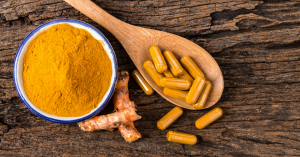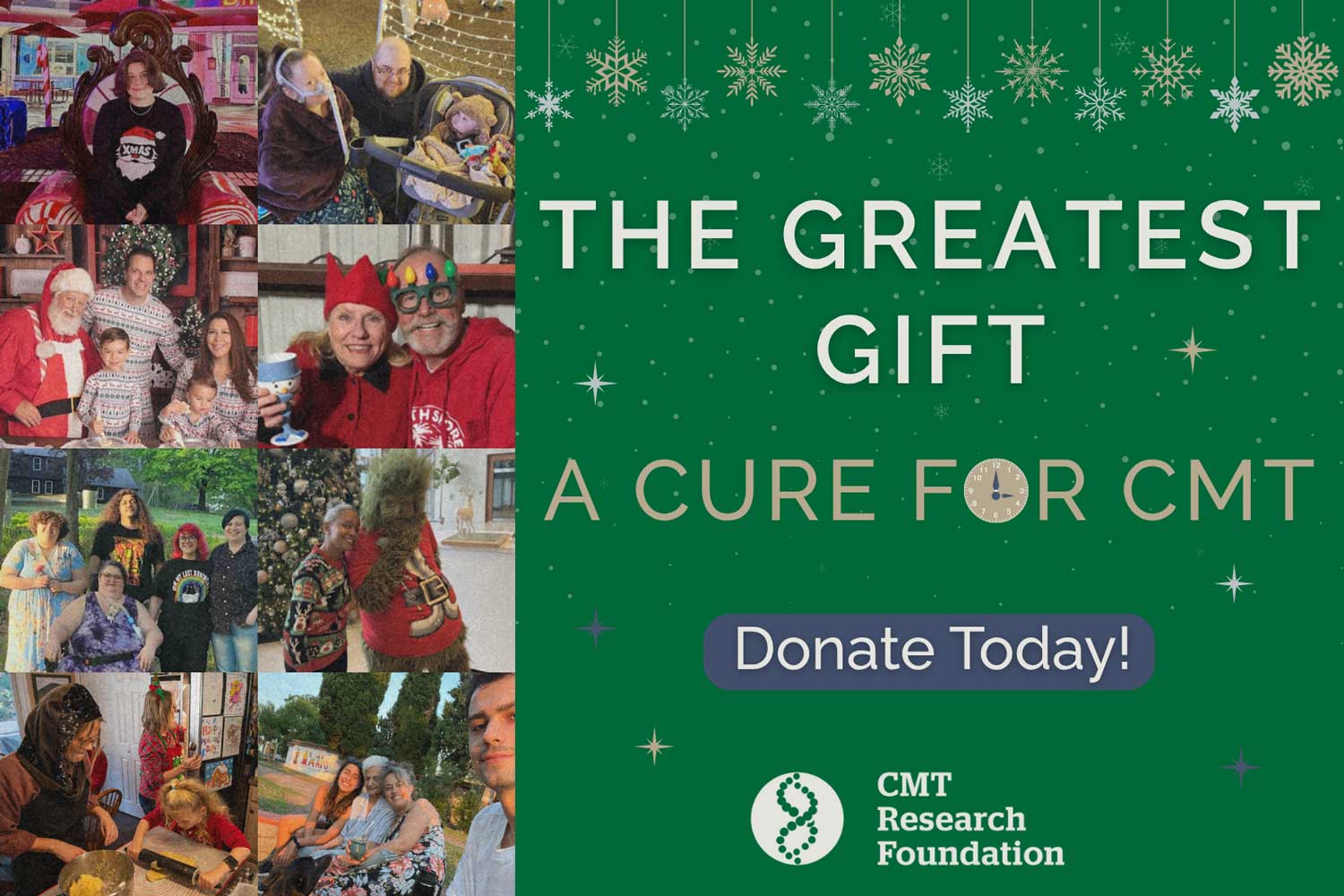By: Keith Fargo, Chief Scientific Officer, CMT Research Foundation
“Should I be taking curcumin supplements or eating more turmeric?”
Many people with Charcot-Marie-Tooth disease (CMT) have been asking this question after researchers recently published a paper about curcumin and CMT in the journal Free Radical Biology and Medicine.
Curcumin is a bright yellow substance produced by Curcuma longa plants and is the principal component of turmeric, a member of the ginger family that’s often used in cooking. Turmeric and curcumin are both also widely available as over-the-counter supplements.

What was the curcumin and CMT study about?
Researchers tested whether a modified form of curcumin has beneficial effects in models of CMT1A — the most prevalent form of CMT. This work was done in cells in a dish and in rats, not in people.
After treating rats with this form of curcumin, the researchers noted several positive results, including:
- Better conduction of electrical signals in the nerves
- Improvements in behavioral measures of nerve functioning, such as grip strength and balance
- Improved thickness of the myelin sheath around axons in the nerves
Further analysis suggested that the treatment may work by reducing oxidative stress in the nerves and muscles.
When might we expect to see curcumin-based treatments for CMT?
Although the results of this study were positive, it is important to keep in mind that studies in cells and animals do not always translate to humans. This is why clinical trials are required to study effectiveness and safety in people before regulatory bodies, such as the FDA and the European Medicines Agency, can approve them (or not) for use in people. If clinical trials of curcumin for CMT treatment are launched, it would take several years for the studies to be complete and for regulatory agencies to fully explore the data and reach a conclusion about safety and effectiveness. Patients shouldn’t expect curcumin-based medications to be available in their doctor’s office in the near future.
Should I take curcumin supplements?
As a science-based organization, the CMT Research Foundation cannot recommend that people take substances until they have been studied in high quality clinical trials which has not happened yet for curcumin in CMT. Because of this, we don’t yet know whether curcumin would be beneficial — or even safe — for use in people with CMT.
It is tempting to think that supplements are safe because they are sold in drug stores, health food stores, and even grocery stores. However, supplements and even common foods such as cheese and cinnamon are known to interact with medications or be unsafe for people with certain health conditions. For example, St. John’s wort can reduce the effectiveness of some chemotherapy medications.
In terms of effectiveness, although curcumin has been studied for many different health conditions, there is not yet any compelling evidence in people that it is effective as a treatment for any of them.
If you wish to explore the possibility of trying curcumin, consult with your health care provider first. He or she can discuss the potential risks and benefits and review whether any medications you take or other health condition you have may put you at risk for a dangerous interaction with curcumin.
What does this mean for CMT research?
One of the challenges that the researchers point out in their article is that curcumin by itself has poor pharmacokinetics. This means that it is not very good at getting to the right parts of the body on its own. To get around that problem, they developed a proprietary delivery vehicle called curcumin-cyclodextrin/cellulose nanocrystals. You can think of this like a piece of cheese that you might wrap your pet’s pill in to trick them into taking their medicine.
This problem of getting treatments to the right parts of the body is a common challenge in drug development for CMT. The CMT Research Foundation has several research projects underway to examine possible solutions to this problem.
Where can I find more information about curcumin?
The U.S. National Institutes of Health National Center for Complementary and Integrative Health maintains a health information page on turmeric and curcumin.

